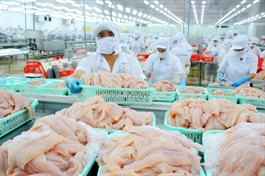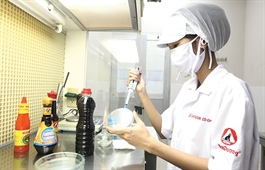Drug suppliers bid for standards recognition
Drug suppliers bid for standards recognition
The race in drug tenders is further intensifying as more international pharma groups continue to aim for sought-after Good Manufacturing Practices (GMP) recognition for their manufacturing sites.

Multinationals’ drugs make up an average of 26 per cent of total health insurance spending. Photo: Freepik.com
|
In late September, the Ministry of Health (MoH) announced Dispatch No.15336/QLD-CL on the list of manufacturing sites that multinational corporations (MNC) need to make further clarifications in order to be recognised with a GMP qualification, with Zuellig Pharma, GlaxoSmithKline Pte Ltd (GSK), Besin Healthcare, and Pfizer being among the most well-known names.
Thai-based Besin Healthcare Company, which proposes the manufacturing site Laboratoires Besins International, has been requested to supplement some documents that clarify the printed factory diagram showing each production area as well as a diagram of the facility’s water treatment system.
Similarly, the Ho Chi Minh City office of Zuellig Pharma, which seeks GMP recognition for the manufacturing site Cenexi-Osny, has been asked to further explain why there is no information on biologic production areas, as well as to provide diagrams of the factory and its water treatment system.
Merck Sharp & Dohme’s site Hanmi Pharmaceutical Co., Ltd, is urged to add documents about the list of inspections in recent three years, its water treatment system, the list of products, and equipment, among others. Reckitt Benckiser Ltd. from Thailand, GSK, Pfizer, Diethelm & Co., Ltd, and Dr. Reddy’s Laboratories Ltd. are also among the competitors in drug tenders in Vietnam.
While it is not easy for MNCs to attain the valuable GMP acknowledgement and clarify several aspects of their manufacturing sites on the way, most of them seem eager to boost their presence in the lucrative local pharmaceutical market, signalling a hotter market in the months to come.
As shown in the Drug Administration of Vietnam’s statistics, drugs from MNCs make up an average of 26 per cent of total health insurance spending, with 47 per cent spent at central hospitals, and 26 per cent at provincial ones.
However, possible cuts of drug prices may worry some MNCs, as Vietnam’s new tender rules have taken effect from last week.
Under the newly-issued Circular No.15/2020/TT-BYT on promulgating list of drugs procured through bidding, the drugs for procurement through bidding, for concentrated procurement, and for procurement through price negotiation see some changes from October 6, aiming to lower the prices of brand-name drugs. Circular 15 is in line with the government’s direction to reduce medicine prices and increase locals’ access to quality medicines, focusing on branded drugs.
Replacing Circular No.09/2016/TT-BYT issued four years ago, the new rules have been well-received thus far by MNCs as they advocate price negotiation. With the new issuance, however, they may have to reduce prices to compete with other generic drugs, meaning that future profits may be reduced. Industry insiders said that the GMP recognition is a good solution for MNCs to gain advantages and shelter from the disadvantages of the new rules.




























